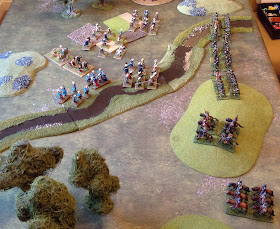Angus gives us the historical background that explains why the Barbary coast of North Africa became a haven for pirates. He also helpfully takes us through the various descriptions of pirates - Buccaneers, Privateers, Corsairs etc. Most of what became the Barbary States, were under loose Ottoman control and as a consequence the Corsair fleets fought with the Ottomans on many occasions.
Outwith periods of declared war, their operations were commercial. Raiding for goods and slaves that were handled, in accordance with clearly set out rules, in the Barbary ports. Angus explains who the pirates were, including large numbers of renegades - many from Britain. I hadn't appreciated that the fighting crews included significant numbers of Janissaries.
While the Galiot was the archetypal Corsair ship, they also used the larger galleys as well as a range of smaller ships. These are described and illustrated.
This is an excellent introduction to the subject. There are a number of more detailed histories, covered in the bibliography, but few are so well illustrated.
I am currently playing the small battle renaissance rules 'Pikeman's Lament'. So this book was all the inspiration I needed to get the Barbary pirates onto the table. The mission is a raid by the pirates to capture slaves from an inland village in Spain. On their way back to the coast, the pirates are intercepted by a local garrison.
The pirates have two units of Janissaries (I used the Forlorn Hope category for these) and three units of pirates (using Clansman). The Spanish have a unit of trotters and mounted arquebusiers, plus two shot and one pike. A priest is attached to the pikemen. The Spanish won comfortably and the slaves liberated.






No comments:
Post a Comment